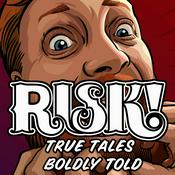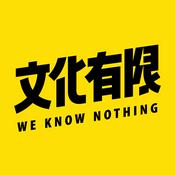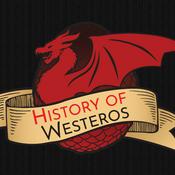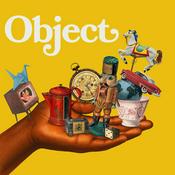204 episodes
- While farmer distrust of AI remains a key adoption barrier, will farm businesses that are being set up for an AI future have a competitive advantage?
Paul Windemuller is a pioneering first-generation farmer and Nuffield Scholar from Coopersville, Michigan (USA). Along with his wife Brittany,
Paul built his farm from the ground up with limited capital, relying on ingenuity, automation, and data-driven decision-making to grow Dream Winds Dairy into a highly tech-enabled operation.
In this episode, Paul shares his unconventional journey into dairy farming from digging parlor pits by hand and retrofitting sheds on a shoestring budget, to becoming an early adopter of robotics, wearable sensors, and AI-enabled tools. Paul didn’t grow up on a farm, so technology became a way to compensate for what he calls a lack of “cow sense,” helping him make faster decisions around health, breeding, and herd performance.
As AI accelerates, Paul argues that adoption is less about buying another gadget and more about building the underlying foundations: connectivity, clean data, and a culture of curiosity within farming teams.
Sarah and Paul discuss:
How a lack of traditional farming experience became a catalyst for data-driven innovation.
Why AI should be viewed as a utility, like electricity, rather than a single technology purchase.
The practical steps farmers can take today to become “AI ready.”
Why governance models that keep value with farmers and rural communities could determine whether AI delivers long-term benefits.
Why farmer-owned data infrastructure and interoperability may be the next big innovation in agriculture.
Useful Links:
Leading the Herd: AI, Insight, and the Next Agricultural Revolution, (Paul’s Nuffield report)
Getting Into the weeds: the AI data dilemma
Artificial Intelligence and the Future of Work in Agriculture
Yield maps killed agtech software, can AI fix it? (report)
For more information and resources, visit our website.
The information in this post is not investment advice or a recommendation to invest. It is general information only and does not take into account your investment objectives, financial situation or needs. Before making an investment decision you should seek financial advice from a professional financial adviser. Whilst we believe the information is correct, we provide no warranty of accuracy, reliability or completeness. - While there is a growing recognition of the importance of indigenous knowledge in agriculture, all too-often, First Nations people are being asked to fit in with an established model. What if we flipped the script to create food systems that are led by indigenous principles?
That’s what Jacob Birch is aiming to do in reawakening a native grains industry in Australia. He’s a proud Gamilaraay man, scholar, Churchill Fellow, and entrepreneur who founded Yaamarra & Yarral, a wholesaler of ancient grains and retailer of stone milled flour.
In this episode, Jacob shares his journey into native grains, beginning with biodiversity and landscape restoration, and expanding into food, culture, and economic sovereignty. He explains why native grasses are keystone species for Australia’s ecosystems, how Indigenous Australians managed grain systems for tens of thousands of years, and why these histories, including bread-making, are still largely absent from mainstream narratives.
In his Churchill Fellowship, Jacob draws on lessons from First Nations communities in North America, exploring what Indigenous-led food systems can look like when the goal is not export-driven scale, but healthy communities, country, and self-determined economic development.
Sarah and Jacob discuss:
The nutritional value of native grains and their role in climate resilience and food sovereignty.
Why post–farm gate ownership is crucial for First Nations people.
How subsidies could potentially support indigenous-led enterprises in food and agriculture.
The realities of building a native grains industry; from land access to challenges in processing.
Useful Links:
Jacob Birch, Churchill Fellowship report
Grasslands Documentary
Jacob Birch researcher profile
Modernising Indigenous Native Grains Processing | AgriFutures Australia
White Earth Nation
Fond du Lac Band of Lake Superior Chippewa
Native Farm Bill Coalition
Tribal Elder Food Box - Feeding America Eastern Wisconsin
First Nations Australians in Agriculture, Fisheries and Forestry - DAFF
2030 Roadmap - National Farmers' Federation
For more information and resources, visit our website.
The information in this post is not investment advice or a recommendation to invest. It is general information only and does not take into account your investment objectives, financial situation or needs. Before making an investment decision you should seek financial advice from a professional financial adviser. Whilst we believe the information is correct, we provide no warranty of accuracy, reliability or completeness. - We’ve hit a tipping point for autonomy in agriculture, so how far off is fully autonomous farming? In this episode, Matthew Pryor sits down with Brett McMickell, Chief Technology Officer at Kubota North America, to unpack his view on what autonomy can deliver in agriculture and why it’s closer than many people think.
Brett’s career spans spacecraft control systems and multi-vehicle autonomy. Today at Kubota, he’s helping guide autonomy strategy inside one of the world’s largest and oldest agricultural equipment manufacturers. Brett’s focus is about ensuring the technology solves on the ground problems for farmers and is driven by customer demand, rather than by the tech itself.
Matthew and Brett discuss:
What supervised autonomy will look like in 1 - 3 years.
Why smart implements and sensing are just as important as autonomous power systems.
Why AI in agriculture is still under-appreciated.
What autonomy will look like in 10 years (without human intervention).
How autonomy could completely change farm layouts, machine sizes, and operating metrics.
How Kubota decides whether to build, partner with, or acquire new technology.
Useful Links:
Kubota USA Innovation
Kubota acquires Bloomfield Robotics, so what?
Kubota to acquire automation company AgJunction - Future Farming
Kubota Concept Tractor | Innovation | Kubota Global Site
Kubota launches first autonomous hydrogen-fuelled tractor - Farmers Weekly
How can agtech startups and corporates do more together?
Seeing into the future of farm autonomy (w/ SwarmFarm Robotics)
Have we hit a tipping point for autonomy in ag?
For more information and resources, visit our website.
The information in this post is not investment advice or a recommendation to invest. It is general information only and does not take into account your investment objectives, financial situation or needs. Before making an investment decision you should seek financial advice from a professional financial adviser. Whilst we believe the information is correct, we provide no warranty of accuracy, reliability or completeness. Making underwater forestry scalable and sustainable, with Andrew Morgan of Hydrowood
10/12/2025 | 47 mins.Today's episode is a tangible example of a company in the "natural capital" space. While not traditional agtech, the Hydrowood journey hits familiar themes: building a business within nature's constraints, managing capital intensity, and the frustrating search for the right investors.
Andrew Morgan watched the Pieman River in Tasmania dam in the 1970s. In 1986, Lake Pieman flooded, submerging centuries-old forests. Many years later, he and co-founder David Wise spotted trees protruding from the dark water- large quantities of native species like Huon Pine, Tasmanian Myrtle, and Sassafras.
The timber was salvageable, but they needed underwater logging technology that wouldn't disturb the lake's ecosystem. This led to the founding of Hydrowood. Today, the business has attracted millions in investment and high-end brand partnerships, but the journey has been far from easy.
In this episode, guest host Adam Taylor, Insights Lead at Tenacious, and Andrew Morgan discuss:
Why the Hydrowood narrative captivates investors and media
Trading off custom versus standard machinery to lower financial risk
Pivoting to crowdfunding when traditional investment proved difficult
The future of sustainable and ethical forestry
Andrew is also the Managing Director of SFM, an asset manager for large-scale plantation estates and carbon project developer.
Useful Links:
The economics of valuing natural capital, with Ken Henry
Hydrowood featured in first global flagship store by R.M Williams
Australian Carbon Credit Unit Scheme | Clean Energy Regulator
OnMarket crowd-sourced funding
Forest Economics Congress, MONA
For more information and resources, visit our website.
The information in this post is not investment advice or a recommendation to invest. It is general information only and does not take into account your investment objectives, financial situation or needs. Before making an investment decision you should seek financial advice from a professional financial adviser. Whilst we believe the information is correct, we provide no warranty of accuracy, reliability or completeness.Have we hit the tipping point for autonomy in ag? With Shane Thomas and Matthew Pryor
26/11/2025 | 32 mins.Over the past few years, the conversation about autonomy in agtech has moved from “but, does it work?” to “how can I get started?” This is a significant shift, indicative of autonomous machinery becoming a fully commercial category in agriculture.
In this episode, Matthew Pryor, Founding Partner at Tenacious Ventures, discusses his recent observations at the Gatton Agtech Showcase, in QLD, Australia, highlighting the move towards production-ready autonomous machinery. He discusses how structure is now emerging in the Australian agtech autonomy market, including in sales and distribution, with a mix of companies from established equipment dealers to venture backed scale-ups. He predicts growth in this market to only compound in the coming years.
Matthew and Sarah are joined by Shane Thomas, founder of Upstream Ag Insights, to also dive into recent agtech news and market trends.
They discuss:
The role of traditional dealership networks in an autonomous future
The potential misuse of the term ‘autonomous’
Regional variations in market dynamics around autonomy between Australia, the US, and Canada
The forces reshaping crop protection, including the rise of non-chemical solutions such as laser weeding and electric weed control
Useful Links:
Carbon Robotics raises $20m to build ‘another AI robot’?, AgFunder News
Monarch Tractor sued over tractors that were 'unable to operate autonomously', TechCrunch
Is Farmers’ Traditional Loyalty to Ag Equipment Colors Fading?, Farm Equipment
The Four Forces reshaping the crop protection industry and what comes next, Upstream Ag Insights
The Generics Revolution and the New Economic Geography of the Global Pesticide Industry, Journal of Agrarian Change
The Race to Define the Future of Ag Retail with Shane Thomas of Upstream Ag Insights, Agtech So What?
Getting into the Weeds: AI, Computer Vision, and the Future of Non-Chemical Weeding, Agtech So What?
Investment Notes: Azaneo, Tenacious Ventures
Disrupting the AgTech Ecosystem with Ron Adner, Agtech So What?
Vavilovian Mimicry, Bionity
For more information and resources, visit our website.
The information in this post is not investment advice or a recommendation to invest. It is general information only and does not take into account your investment objectives, financial situation or needs. Before making an investment decision you should seek financial advice from a professional financial adviser. Whilst we believe the information is correct, we provide no warranty of accuracy, reliability or completeness.
[0007:25] The role of dealerships in an autonomous future
[00:17:45] The forces reshaping crop protection
[00:25:20] Weeds adapting to non-chemical crop solutions
More Arts podcasts
Trending Arts podcasts
About Agtech - So What?
We tell the stories of innovators at the intersection of agriculture and technology to answer the question: what really is agtech and why should you care?
Podcast websiteListen to Agtech - So What?, Table Manners with Jessie and Lennie Ware and many other podcasts from around the world with the radio.net app

Get the free radio.net app
- Stations and podcasts to bookmark
- Stream via Wi-Fi or Bluetooth
- Supports Carplay & Android Auto
- Many other app features
Get the free radio.net app
- Stations and podcasts to bookmark
- Stream via Wi-Fi or Bluetooth
- Supports Carplay & Android Auto
- Many other app features


Agtech - So What?
Scan code,
download the app,
start listening.
download the app,
start listening.

































